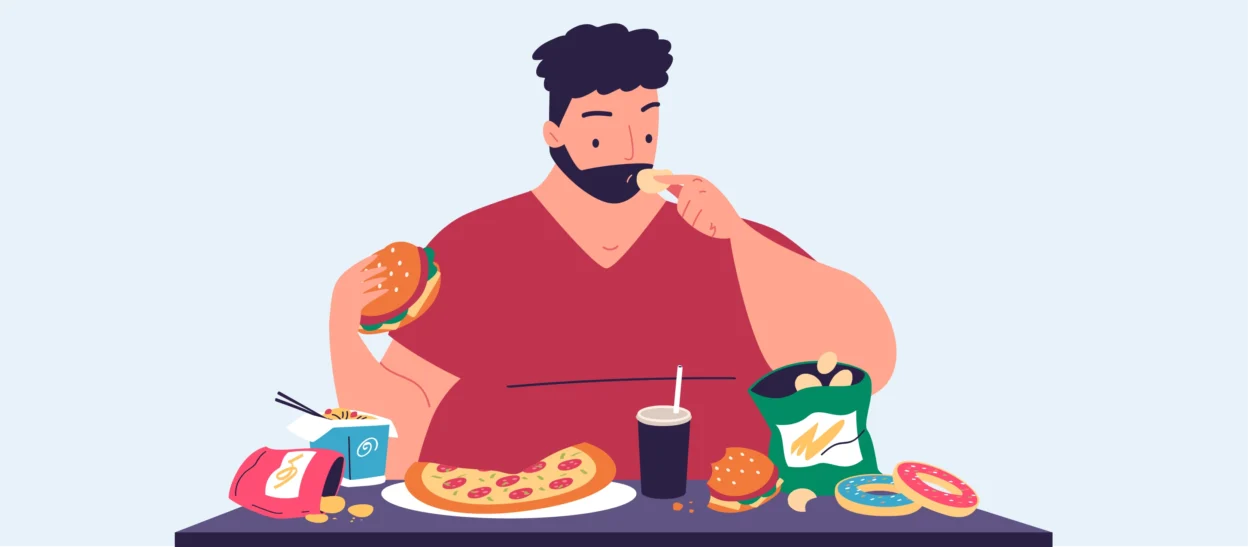Compulsive eating disorder (also known as binge eating disorder) is one of the eating disorders characterized by consuming large amounts of food repeatedly, without control over the quantity or type of food. This often leads to significant weight gain and various health complications.
Symptoms:
Key symptoms include:
- Eating large quantities of food rapidly and uncontrollably.
- Feeling pleasure or relief after eating.
- Experiencing guilt or shame following eating episodes.
- Attempting to get rid of consumed food through vomiting, laxatives, or diuretics.
Causes and Risk Factors:
While the exact causes are not fully understood, several contributing factors include:
- Genetic factors: A family history of eating disorders increases the risk.
- Psychological factors: Many individuals suffer from mental health issues like depression and anxiety.
- Environmental factors: Exposure to psychological or social stress can contribute.
Complications:
Compulsive eating disorder can lead to:
- Severe obesity.
- Cardiovascular problems.
- Digestive issues.
- Dental problems.
- Menstrual irregularities.
- Fertility issues.
- Mental health conditions such as depression and anxiety.
Diagnosis:
Diagnosis is based on a physical examination, medical history, and tests such as blood work and imaging if necessary.
Treatment:
Treatment depends on the severity of the disorder, the patient’s age, and any existing health conditions. Common treatment methods include:
- Psychotherapy: Helps uncover the root causes and teaches coping skills.
- Medication: Alleviates psychological and physical symptoms.
- Nutritional guidance: A doctor or dietitian helps develop a healthy eating plan to manage weight.
Prevention:
Although there’s no guaranteed way to prevent it, some steps may help:
- Encourage healthy eating habits from a young age.
- Teach children how to cope with psychological stress in healthy ways.
- Educate children and teens about eating disorders and their risks.
Conclusion:
Compulsive eating disorder is a serious condition that can lead to various health problems. Recognizing the symptoms and seeking appropriate treatment is crucial for effective management.




